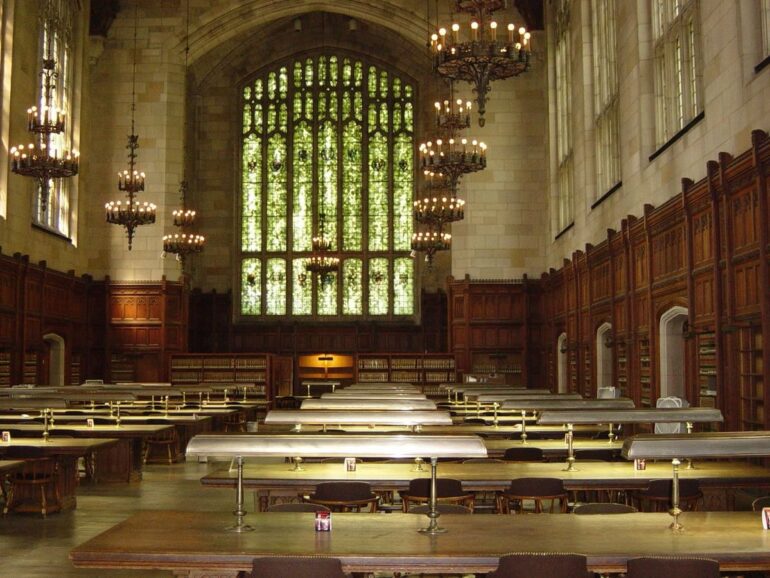TL;DR:
- University of Michigan allocates $575,000 in funding to support innovative research projects.
- Seven research teams receive grants to pursue research in generative artificial intelligence (AI) and computational science.
- Focus areas include sustainable energy, pandemic response, powerful computing, and AI applications in science and education.
- MICDE’s Catalyst Grants program promotes the development and deployment of generative AI techniques.
- Projects aim to enhance training efficiency, simulate pandemic response, predict offshore wind turbine dynamics, and more.
- These initiatives represent the cutting edge of AI and computational science research.
Main AI News:
In a bid to foster pioneering advancements in generative artificial intelligence (AI) and computational science, the University of Michigan has allocated a total of $575,000 in funding. These funds will be distributed among seven research teams engaged in diverse domains, spanning sustainable energy, pandemic response, ultra-powerful computing, and generative AI for scientific and educational purposes. This initiative is made possible through the Michigan Institute for Computational Discovery and Engineering (MICDE), an entity operating under the Office of the Vice President for Research.
Under the Catalyst Grants program, MICDE has meticulously selected and awarded research teams that demonstrate exceptional promise in the realm of generative AI. “This year’s Catalyst Grants focus on the development of novel generative artificial intelligence techniques for scientific applications. These projects are not just highly innovative but also strategically important to U-M, particularly with respect to our evolving relationship with national laboratories,” remarked Karthik Duraisamy, the Director of MICDE and a distinguished professor in aerospace engineering and mechanical engineering. These projects align with U-M’s mission of spearheading the development and deployment of generative AI across various academic spheres.
Since its inception in 2017, MICDE’s Catalyst Grants program has been instrumental in supporting a wide spectrum of research endeavors within the domain of computational science and engineering. According to Vancho Kocevski, the Managing Director of MICDE, the program aims to “initiate these projects and support U-M researchers from the development of their conceptual ideas to making a global impact.”
The grants for the 2023-24 period have been awarded to the following projects:
- Efficient Diffusion Models for Scientific Machine Learning: Led by Liyue Shen, Jeff Fessler, and Qing Qu, this project aims to develop innovative techniques to enhance the training and sampling efficiency of generic diffusion models. Their objective is to introduce computationally efficient diffusion models for high-dimensional data, thereby improving data, memory, and time efficiency.
- Simulating the Impact of Early Outbreak Uncertainty on Pandemic Response Intervention Policies: Michael Hayashi and Joseph N.S. Eisenberg will employ an interdisciplinary approach that draws from health and social sciences to model the effects of early outbreak uncertainty on pandemic response policies. This research will help policymakers better prepare for future pandemics.
- Computational Modeling of a Coupled Aero-Hydro-Structural-Mooring Integrated Dynamic System with Deep Learning for Floating Offshore Wind Turbine Design: This project, led by Jeremy Bricker, Ayumi Fujisaki-Manome, Seymour Spence, and Yulin Pan, seeks to develop an advanced approach to predict the dynamic response of floating offshore wind turbines. They will also work on an early warning technology for extreme sea conditions, based on deep learning.
- Program Synthesis Tools for Scientific Computing: Brendan Kochunas and Xinyu Wang are working on program synthesis methods that take mathematical algorithm descriptions as input and generate functionally correct and performant code using machine learning. This represents a novel approach to scientific computing.
- An AI Coachbot for Strengthening Self-Regulated Learning of Computational ML and AI: Raj Rao Nadakuditi is focused on developing a generative AI-based feedback and coaching chatbot. This chatbot has the potential to revolutionize the training of computational scientists and engineers at U-M.
- Foundation Models at Quantum Mechanical Accuracy for Battery Electrolyte Design Using Wafer-Scale Computing: Venkat Viswanathan and Vikram Gavini aim to train a foundation model on a vast chemical dataset to achieve accuracy comparable to quantum mechanical methods. This model will be fine-tuned for tasks related to electrolyte design.
- Resilient Distributed Training of Large Models: Mosharaf Chowdhury is working on the development of Oobleck, a resilient hybrid-parallel training framework. Oobleck is designed to enable resilient distributed training of large generative AI models, ensuring consistently high throughput even in the presence of failures.
These projects represent the forefront of innovation in the fields of generative AI and computational science and hold the potential to make substantial contributions to both academia and society as a whole. MICDE’s commitment to nurturing these endeavors underscores its dedication to advancing research and technology for the betterment of all.
Conclusion:
The University of Michigan’s substantial investment in generative AI and computational science through its Catalyst Grants program signifies a growing emphasis on cutting-edge technologies and interdisciplinary research. These projects have the potential to drive innovation across multiple industries, from healthcare and energy to engineering and scientific computing, making them highly relevant to the market’s evolving demands for advanced AI solutions and data-driven insights.

